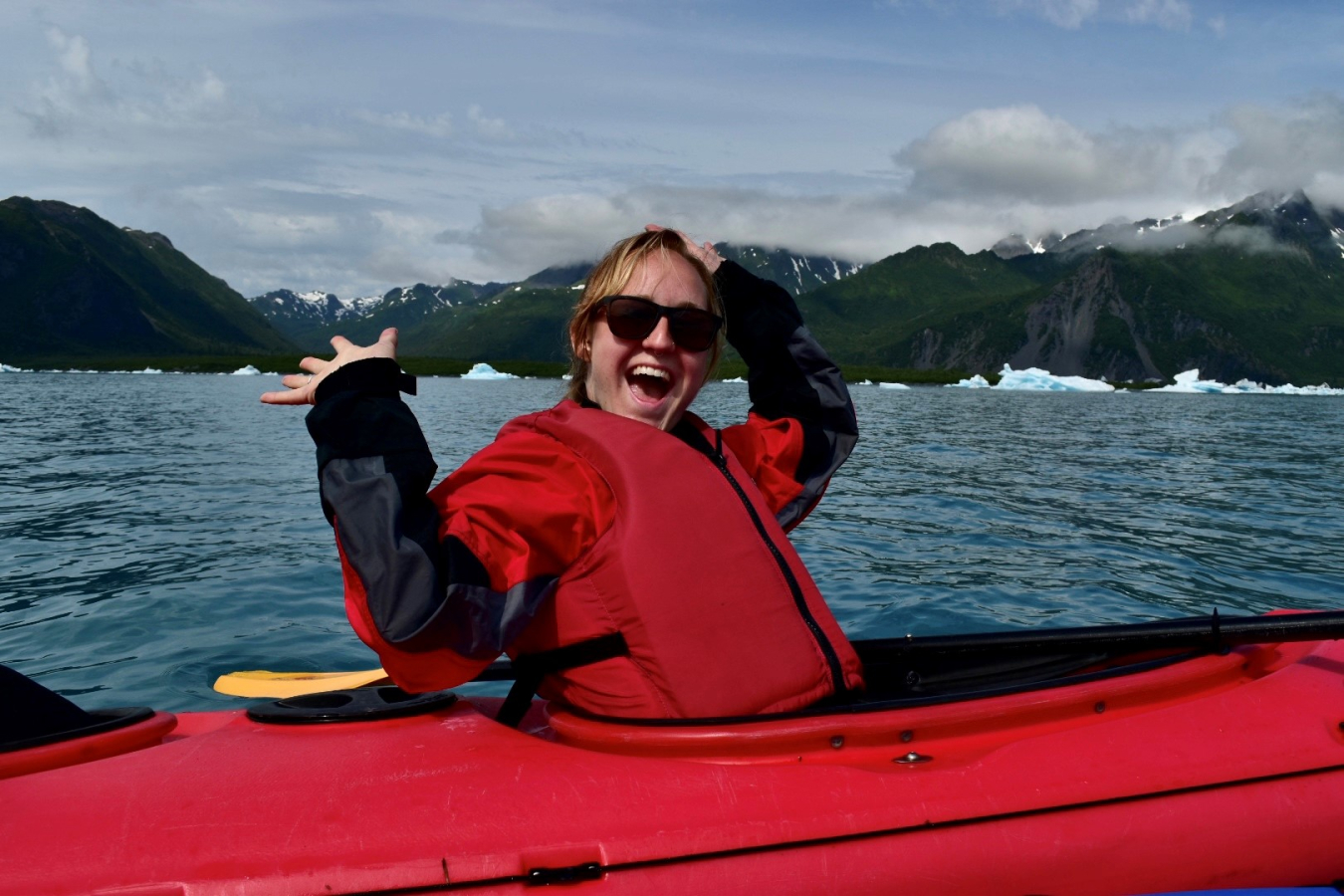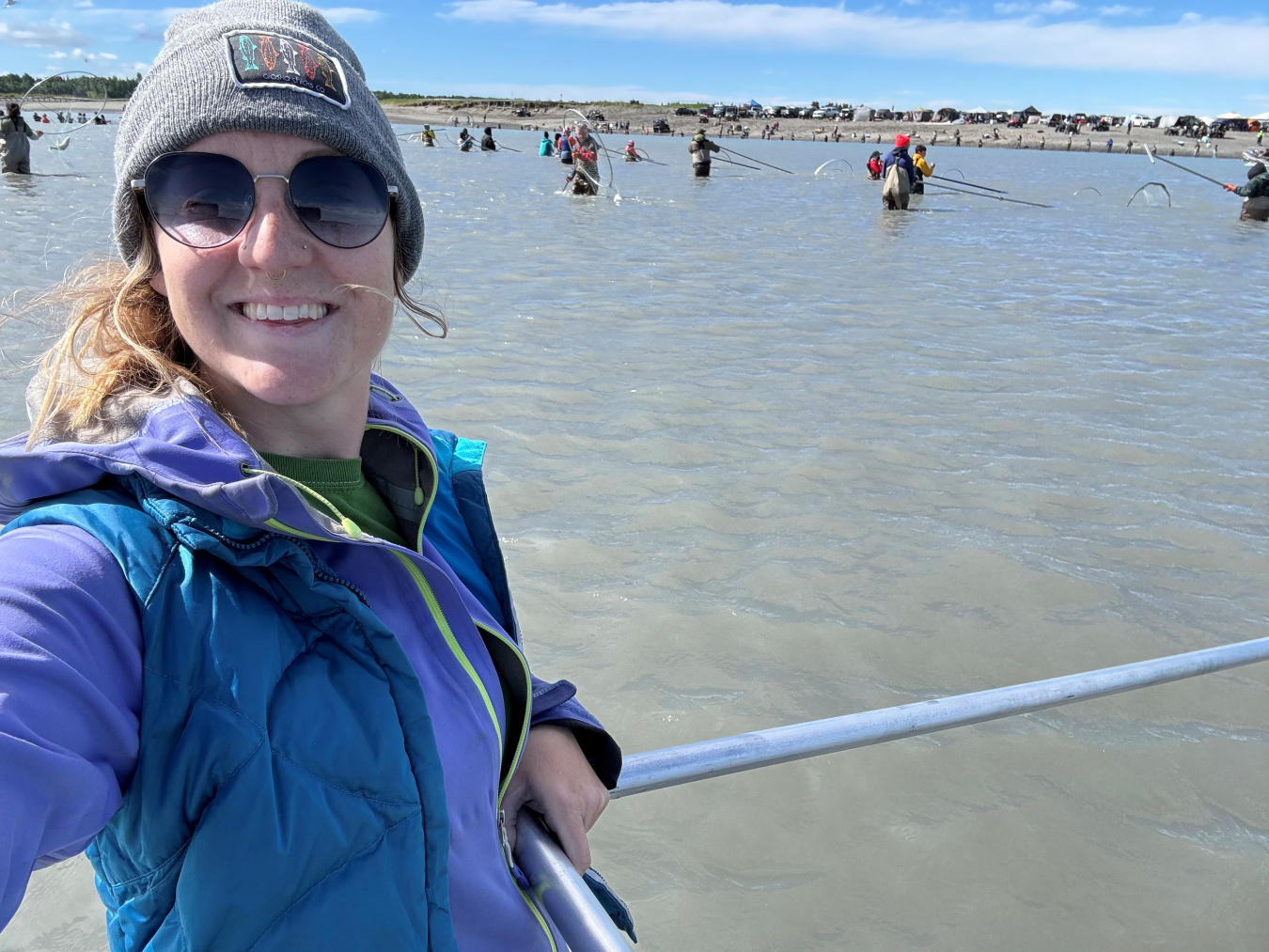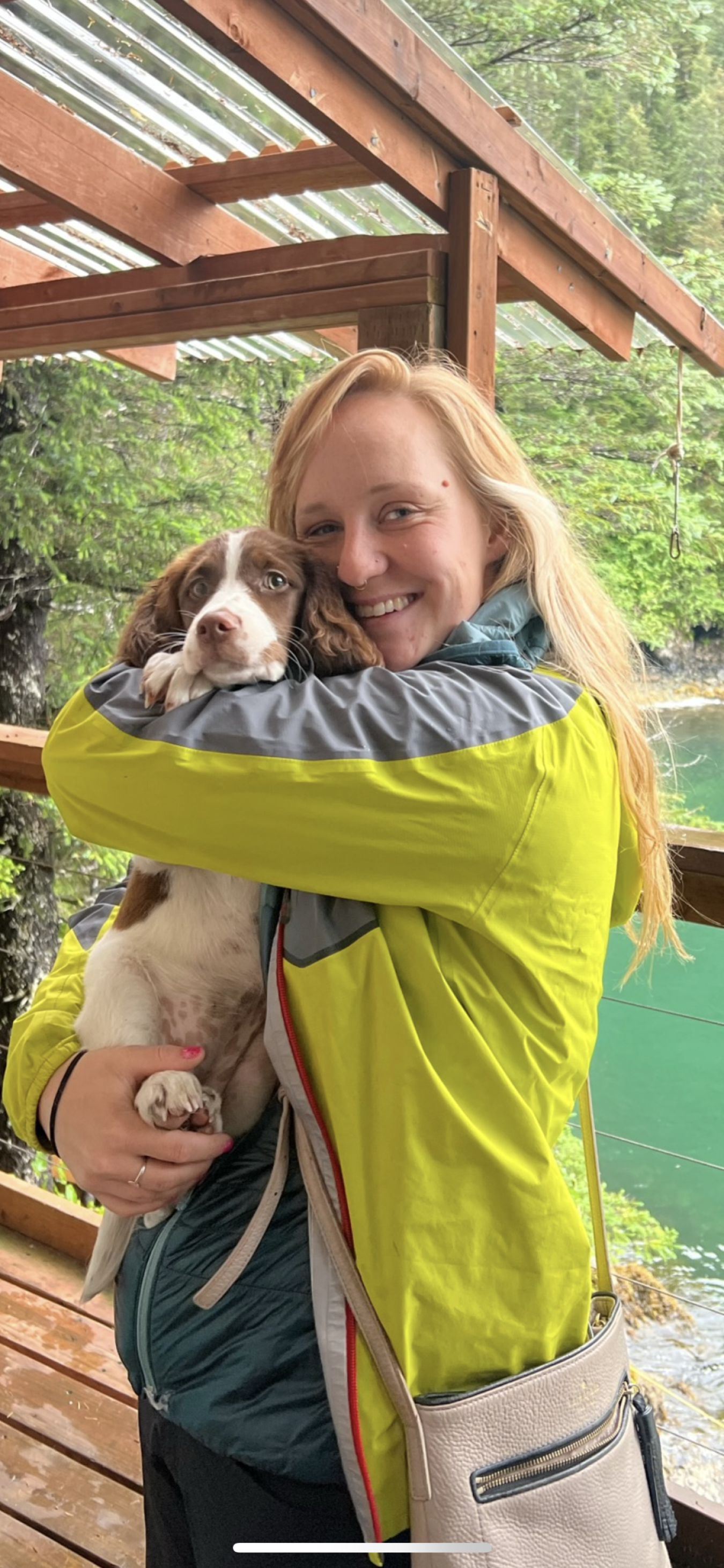Meet Taylor Asher, project officer in the State Energy Program for the Office of State and Community Energy Programs who lives in Anchorage and grew up in Talkeetna.
July 15, 2024The Arctic Energy Office is hosting a series of interviews to highlight the lives and achievements of some of DOE’s outstanding employees with Arctic and Alaska connections. Today meet Taylor Asher, a Project Officer in the Office of State and Community Energy Programs who grew up in Talkeetna and currently lives in Anchorage. If you're a Department of Energy employee and have Alaska connections or know someone at DOE who does, please connect at ArcticEnergy@hq.doe.gov so we can feature you in future editions.

When did you live in Alaska?
I grew up in Talkeetna, Alaska and I am currently based in Anchorage. I also used to work for the Alaska Energy Office which took me around the state to other rural communities and villages, some that are only accessible by boat or plane.
When did you start working at DOE?
I started last August 2023 and have been loving it since day one, I hope to retire from DOE in about 30 years.

What do you do at DOE?
I am a Project Officer in the State Energy Program (SEP) in the Office of State and Community Energy Programs (SCEP). I oversee federal funding to the five U.S territories including American Samoa, the Commonwealth of the Northern Mariana Islands (CNMI), Guam, Puerto Rico and the US Virgin Islands. My job is essential to be the front door to DOE for these territories, help ensure they are spending federal funds correctly and following all federal rules and regulations and support them in implementing energy projects and programs.
Why did you want to work at the DOE?
The federal government has a wide and vast reach, DOE offers states, local governments and territories resources to make a meaningful impact in the clean energy space. I studied Climate Science and Solutions in grad school, focusing on how we generate and consumer energy as a solution to our climate problem. Working at DOE is a dream because it allows me to be part of a team that has similar values and goals for our climate and energy space.
Tell us about your experiences in the Arctic. What have been some of your favorite memories?
Growing up in a small town in Alaska gave me a unique perspective of the world. I did not have running water or electricity growing up, we hauled water and used an outhouse at 40 below. My favorite memories are of riding a snowmachine to school, dip netting in Kasilof (only available to Alaskan residents) catching 25 salmon in just a few hours, and camping near Denali.

How did your time in the Arctic shape who you are today?
Growing up in Alaska, and in particular, the off-grid lifestyle has made me seriously appreciate flipping a switch and a light coming on. It taught me the importance of maintaining healthy ecosystems especially for our subsistence animals, and all life.
How does your time in the Arctic impact your perspectives at DOE?
I understand the importance of community engagement and working with small and rural communities. Although Alaska is in the Arctic and all of the U.S. territories are close to the equator, besides climate, we face similar issues including remoteness, lack of resources, shipping challenges, a limited workforce, language barriers, internet connectivity constraints and others. My experience in Alaska has provided me with a background that allows me better understand the needs of territories and work with them to meet their energy goals.
What do you love about your job?
I love love love working with the territories, we have similar experiences and I have developed a great working relationship with the folks managing their federal funding. I also have a great team, supportive supervisor, and the culture at DOE is positive, motivating and we get a lot done with a small group of people.
What's your favorite place in Alaska?
My favorite place in Alaska is Seward, I love taking the boat out to see glaciers, the fjords and all the marine wildlife including whales, sea lions, otters, puffins, shrimp, etc.

